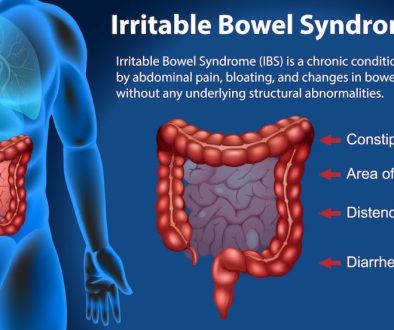Probiotics for Seniors: Enhancing Immunity and Digestive Support
As we age, our bodies undergo various changes that can impact our overall health, including immune function and digestive health. Probiotics, the beneficial bacteria found in fermented foods and supplements, have gained attention for their potential to support these aspects of health in seniors. This article explores the benefits of probiotics for older adults, focusing on their roles in enhancing immunity and providing digestive support.
1. Understanding Probiotics
Probiotics are live microorganisms that confer health benefits when consumed in adequate amounts. They are essential for maintaining a balanced gut microbiome, which plays a crucial role in digestion, nutrient absorption, and immune function.
- Gut Microbiome Changes: In seniors, the composition of the gut microbiome may change due to factors such as diet, medications, and lifestyle. This shift can lead to decreased diversity and an increase in harmful bacteria, impacting overall health.
2. Probiotics and Immune Support
A strong immune system is essential for fighting infections and maintaining health, particularly in older adults who may be more susceptible to illnesses.
- Enhancing Immune Response: Probiotics can help modulate the immune system by promoting the activity of immune cells, such as macrophages and T cells. Certain strains, like Lactobacillus rhamnosus and Bifidobacterium lactis, have been shown to enhance immune responses, reducing the risk of respiratory infections and gastrointestinal illnesses.
- Reducing Inflammation: Chronic low-grade inflammation is common in older adults and can contribute to various age-related diseases. Probiotics may help reduce inflammation by balancing gut bacteria and producing short-chain fatty acids (SCFAs), which have anti-inflammatory properties.
- Preventing Infections: Probiotics may help prevent infections, such as urinary tract infections (UTIs) and respiratory infections, which are more prevalent in seniors. They can compete with pathogenic bacteria and enhance the gut barrier function, preventing harmful bacteria from entering the bloodstream.
3. Probiotics for Digestive Support
Digestive issues are common among older adults, including constipation, diarrhea, and irritable bowel syndrome (IBS). Probiotics can provide significant benefits for digestive health.
- Alleviating Constipation: Probiotics can help improve bowel regularity and reduce constipation, a common issue in seniors. Strains like Bifidobacterium longum and Lactobacillus casei have been shown to enhance gut motility and promote regular bowel movements.
- Managing Diarrhea: Probiotics are effective in managing various types of diarrhea, including antibiotic-associated diarrhea and traveler’s diarrhea. They can help restore the balance of gut bacteria and reduce the duration and severity of diarrhea.
- Improving Gut Health: Probiotics can support overall gut health by enhancing the gut barrier, improving nutrient absorption, and reducing symptoms of digestive disorders. A balanced gut microbiome can also help alleviate symptoms of IBS and other gastrointestinal conditions.
4. Choosing the Right Probiotic for Seniors
When selecting a probiotic supplement for seniors, consider the following factors:
- Specific Strains: Look for probiotics that contain well-researched strains effective for immune and digestive support. Strains like Lactobacillus rhamnosus, Bifidobacterium lactis, and Lactobacillus acidophilus are often recommended.
- CFU Count: A CFU (colony-forming unit) count in the range of 5 billion to 30 billion per serving is typically effective for seniors. However, individual needs may vary, so it’s essential to consult with a healthcare provider for personalized recommendations.
- Formulation: Probiotics come in various forms, including capsules, powders, and gummies. Choose a formulation that is easy for seniors to take and digest.
- Quality Assurance: Opt for reputable brands that undergo third-party testing for potency and purity. Look for certifications to ensure the product meets quality standards.
5. Incorporating Probiotics into the Diet
In addition to supplements, seniors can benefit from incorporating probiotic-rich foods into their diets:
- Fermented Foods: Include foods like yogurt, kefir, sauerkraut, kimchi, and miso. These foods can provide natural sources of beneficial bacteria.
- Prebiotic Foods: Eating foods high in prebiotics, such as garlic, onions, leeks, bananas, and whole grains, can nourish beneficial gut bacteria and enhance the effects of probiotics.
- Balanced Diet: Encourage a well-rounded diet rich in fruits, vegetables, lean proteins, and healthy fats to support overall health and gut function.
Probiotics can play a significant role in supporting the health of seniors by enhancing immune function and providing digestive support. By incorporating probiotic supplements and foods into their routines, older adults can improve their gut health and overall well-being. As always, seniors should consult with healthcare providers before starting any new supplements to ensure they are appropriate for their individual health needs.




